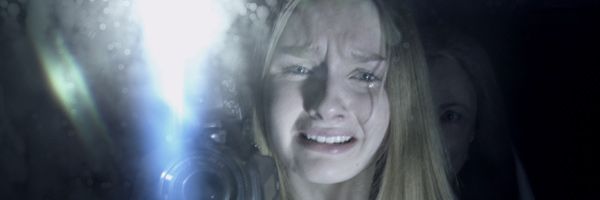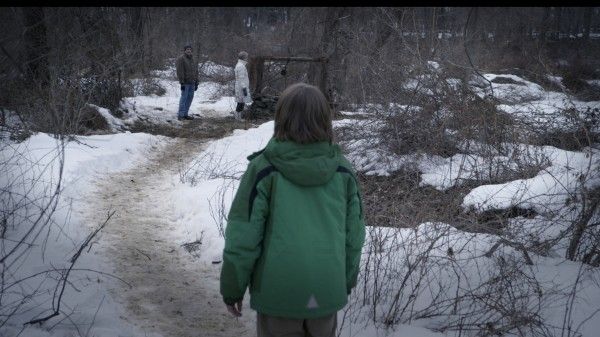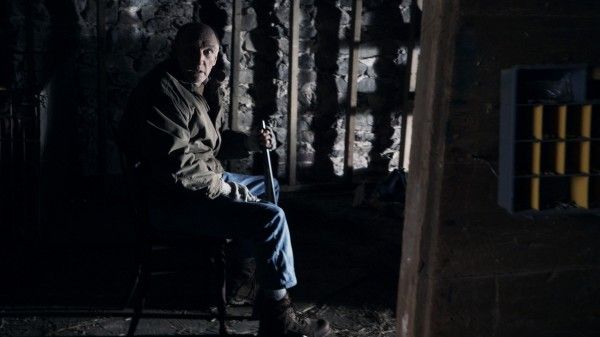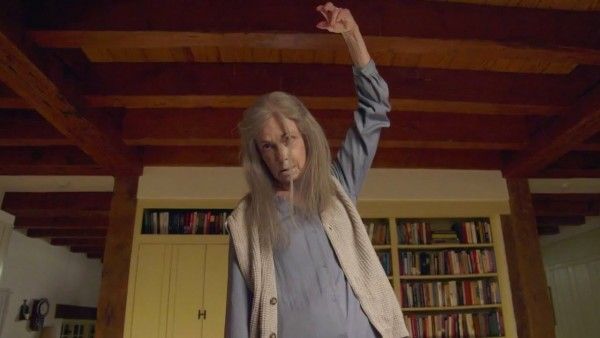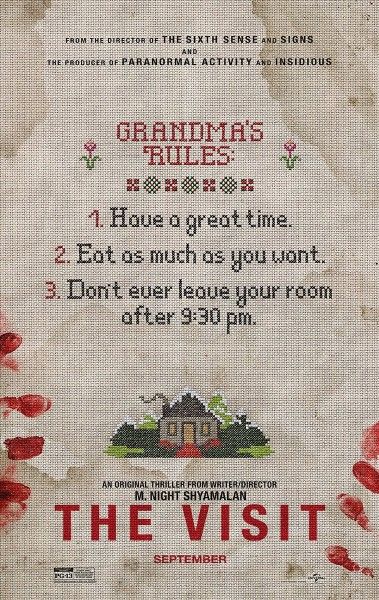M. Night Shyamalan and the found footage subgenre are made for each other insofar as they were once wildly popular and effective, but have over time descended into cliché. The director’s name is now synonymous with hackneyed twists that can barely support his high concepts, and the subgenre tends to induce more motion sickness than scares. And yet they’ve come together for the director’s latest film The Visit, which is both refreshing and yet painfully oblivious to its shortcomings. Shyamalan’s earnest devotion to family relationships shines through, but he seems unaware of how laughably bad and remote his characters are. His attempt to create a closer kinship to his young protagonists through a found footage vehicle only makes the characters seem more contrived, and while his heart is in the right place, the machinations of both the director and the subgenre overshadow everything that could draw us in.
Becca (Olivia DeJonge) and her younger brother Tyler (Ed Oxenbould) are going to spend the week with their estranged grandparents in order to give their harried mother (Kathryn Hahn) time with her new boyfriend. When Becca and Tyler arrive at a remote farm and meet up with Nana (Deanna Dunagan) and Pop Pop (Peter McRobbie) they notice that the old couple behaves strangely. They seem just as likely to bake a person as they are chocolate chip cookies, and Becca, an aspiring filmmaker armed with two cameras, is determined to find out why her grandparents are acting so strange.
Shyamalan is at this best when exploring strained families. He’s known for his twist endings, but The Sixth Sense wouldn’t be half as strong without the powerful mother-son relationship between Cole and Lynn. Becca and Tyler are believable as siblings, and when Shyamalan gives his attention to how they want to be supportive of their mother, the story shines through as a strong drama about healing broken families. However, there are times when Shyamalan gets too real, like Tyler wanting to be a rapper. I buy that a tween white boy would want to rap, but it’s still cringe-inducing, and the character’s germ phobia feels tacked on and half-considered. You can see Shyamalan drawing from personal experiences and relationships, but it feels stilted.
That’s partly due to the framing device. Becca is both cinematographer and editor, but it feels more like a director playing with the form than a teenage girl discovering her talent. The comic timing can be superb, but who’s the audience? It always feels like Shyamalan is in his own head rather than Becca’s, and he fails to fully consider how she would cut the film. I don’t believe that she would have expert timing and know how to perfectly frame her shots for maximum scares. It’s too polished to be amateur but too amateur to be taken seriously. Rather than the found footage bringing us closer to Becca’s mindset, it pushes us further away, and makes us constantly aware of the framing device.
The movie can also induce whiplash with how fast Shyamalan wants to swing between scares and comedy. Within the span of seconds, he tries to shock the audience with Nana naked and clawing at the walls, and then he wants to get a laugh with Tyler shouting “My eyes! My eyes!” For a director whose past work has been remarkably self-assured, The Visit continually comes off like a novice effort not on the part of Becca, but on the part of Shyamalan working through his protagonist. Becca may be in control of the camera, but Shyamalan is in control of the script, and it feels like he’s up to his old tricks despite stripping away the polish of his past efforts.
These tricks are at odds with the earnestness that struggles to keep The Visit afloat. Even at its most awkward times (like the aforementioned rapping), Shyamalan can still tap into something real between his characters, especially Becca and Tyler, but we know how the director likes to play his games, and while at times it seems like he’s exploring a new storytelling format, at others it feels like he’s reaching for the safety of unnecessary twists. To his credit, the twist in The Visit is thematically relevant, but it’s buried beneath a bunch of overcooked performances and jump scares.
Despite Shyamalan and the found footage subgenre failing to serve each other, The Visit is still a promising step in the director’s career. It feels like he’s been lost in the wilderness a bit, and the result were mercenary, indifferent projects like The Last Airbender and After Earth. By going back to basics and dipping into a new style of storytelling, Shyamalan has reemerged, and while The Visit is far from a resurrection, it offers a glimmer of hope for the director’s future.
Rating: C-

